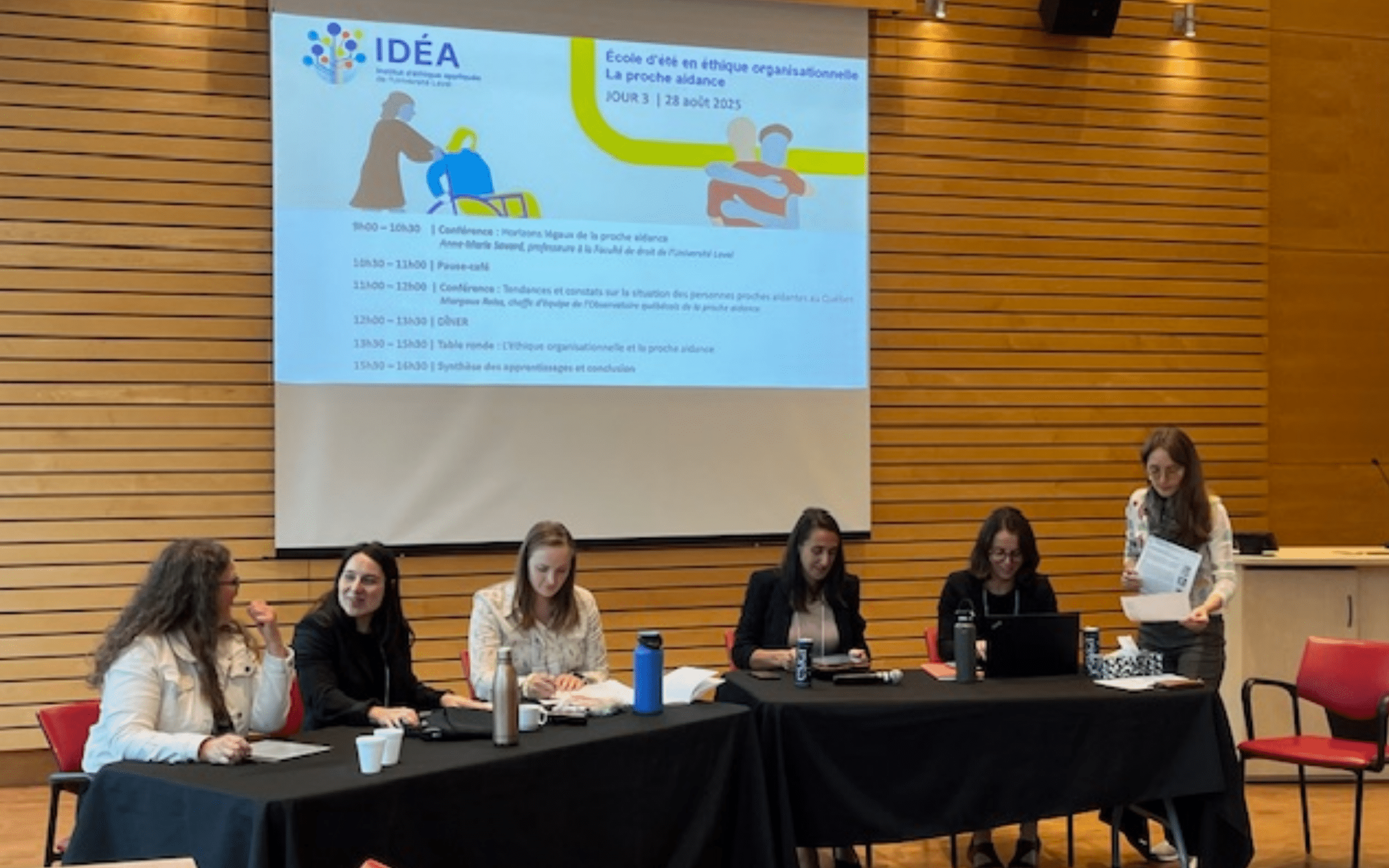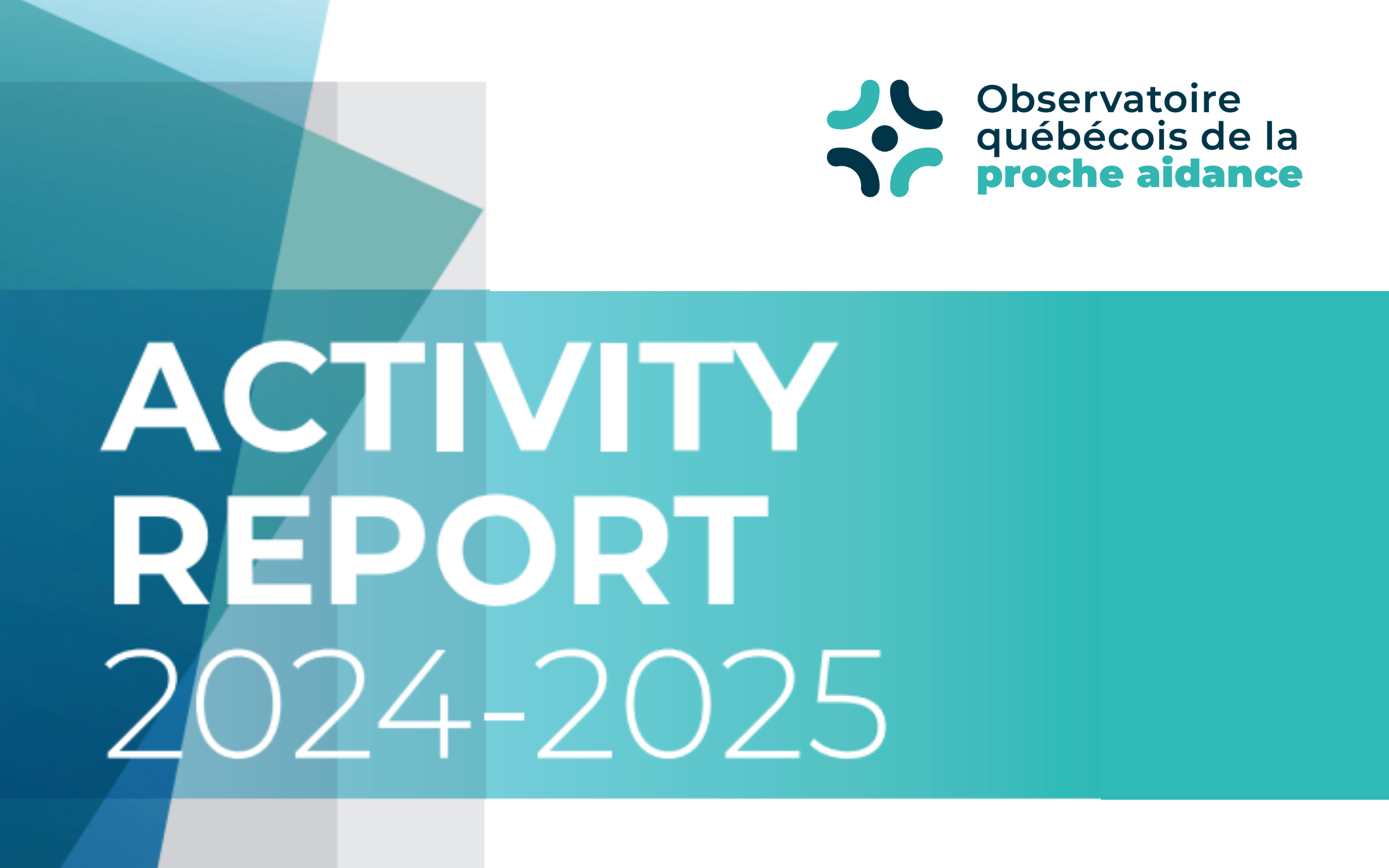Question: In your opinion, what are the most pressing or complex ethical issues on an organizational and societal level when it comes to caregiving?
There are several other issues, but I would like to mention three.
First, according to the Act to recognize and support caregivers, the support provided by a caregiver should be voluntary, informed, and revocable. But, in reality, these conditions are difficult to meet. To what extent can a person truly choose to become a caregiver when they are under family or social pressure, for example? Or when they act out of a sense of obligation (out of love, loyalty, duty, or other reasons)? Also, can they withdraw or reduce their support when there is a shortage of services or when no one else in their circle is able to take over?
The second issue concerns recognition of caregivers’ role. Recognition makes it possible to identify caregivers, acknowledge and value their role, help them become aware of their responsibilities, but also the possible repercussions on their lives, as well as of their right to access services and support measures. However, some people refuse to identify themselves as caregivers in order to protect the dignity of the person they are caring for (to avoid stigmatization in the context of mental health, for example). Others are slow to recognize themselves as caregivers because they consider their role to be “natural” or “expected” in relation to someone with whom they have an emotional bond or legal obligation (such as a child or spouse). In such cases, it’s important that professionals respect individuals’ decision not to identify as caregivers, while still supporting them in recognizing their responsibilities and needs.
Finally, there is an issue of equity among caregivers, particularly in terms of access to services and information. These inequalities are exacerbated by several factors: gender, socioeconomic status (the privilege of using private services when one has more means), living environment (services are more accessible in urban areas than in rural areas), cultural background, language, and minority status (Indigenous people, 2SLGBTQIA+).
Question: If you had to summarize the two or three most salient ideas or perspectives that emerged during the third day, what would they be?
Several interesting perspectives emerged during this third day, but two of them stood out to me in particular.
The first is the need to be adaptable and flexible in the support offered to caregivers. This means that professionals must recognize their role and responsibilities, offer services tailored to their realities and needs, and foster genuine partnerships with them. These partnerships must be based on true collaboration, with each party contributing to facilitating access to information and support.
Second, to address the various ethical issues, a systemic approach is required. This means taking action on several levels: health and social services, social factors that influence the experience of caregivers (e.g., work environments), and the mobilization of all stakeholders involved in caregiving.
Question: In your opinion, how can we better support caregivers at the organizational and societal levels, taking into account the ethical issues they face?
Firstly, we must go beyond symbolic recognition and implement concrete support measures such as access to respite care, financial compensation, and psychological support. These forms of support recognize the essential role of caregivers and better meet their needs.
Second, it is essential to recognize and value the specific expertise of caregivers in relation to the person they are caring for. This means involving them in decisions about the care provided to the person they are caring for, as well as in organizational decisions, such as the development of services, for example. In the same vein, it is important to respect their autonomy and their ability to consent to their commitment. This can be achieved, for example, by setting up regular reviews to assess their involvement and ensure that it continues to be meaningful to them, in line with their capabilities. With this in mind, access to reliable and objective information is fundamental, as it enables caregivers to make decisions with full knowledge of the facts.
Thirdly, in terms of services, it is becoming essential to work towards smoother care pathways. This involves developing coordinated transition services (for example, when moving from youth to adult services or from curative to palliative care), as well as establishing integrated caregiving trajectories to avoid disruptions or fragmented interventions.
Finally, we must not forget professionals. They are often caught between respecting the needs of the person being cared for and the well-being of the caregiver, especially when the interests seem to diverge. Training them in ethical collaboration with caregivers is essential: raising their awareness to the importance of listening, of recognizing each person’s limits, and respecting cultural diversity. It is also important to provide them with clear guidelines, particularly on the characteristics of caregivers, how to assess their needs, how to guide them, and how to support them. More precise guidelines would reduce the gray areas that generate ethical tensions in their practice.
Like to know more? Consult:
- The Knowledge portal on caregiving
- The website section Caregiver recognition
- The website section Caregiving trajectories




